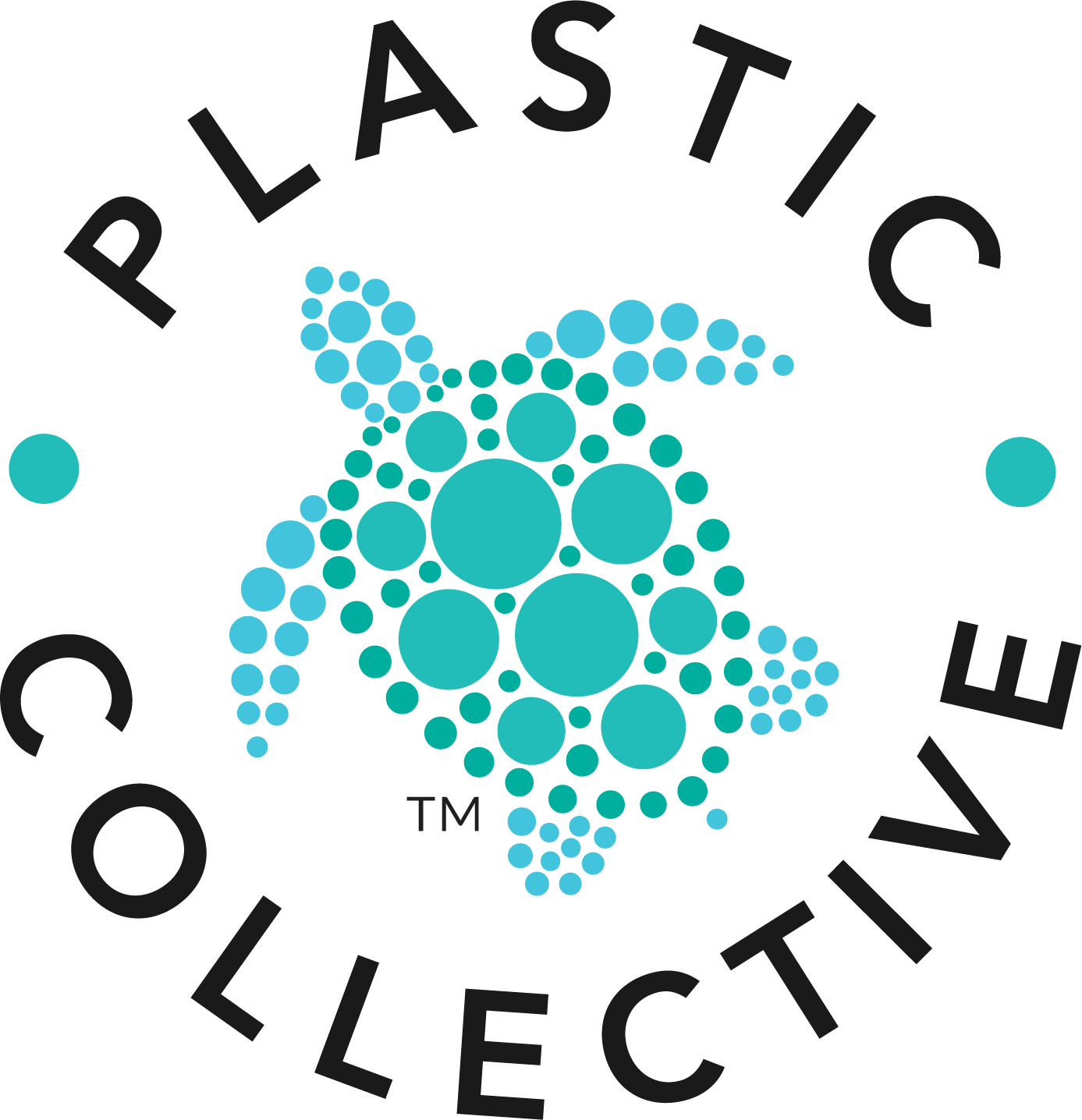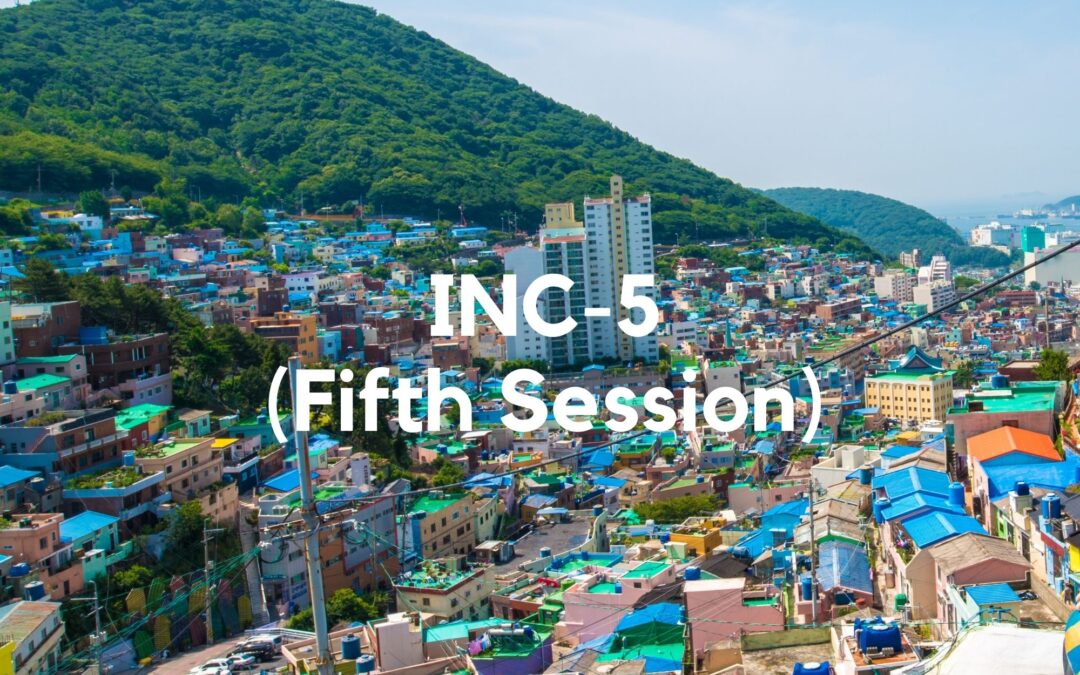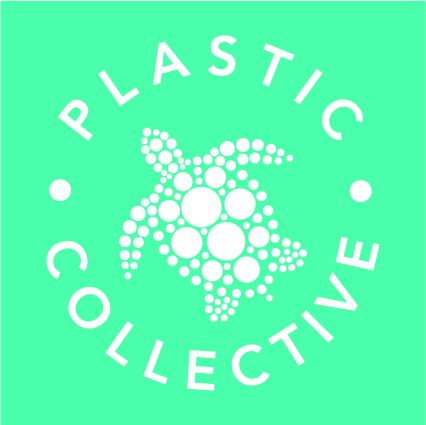The fifth session of the Intergovernmental Negotiating Committee (INC-5) on plastic pollution, convened by the United Nations Environment Programme (UNEP), is scheduled to take place from November 25 to December 1, 2024, in Busan, South Korea. This significant meeting marks the next critical step toward a legally binding global treaty on plastic pollution, with plans to finalise the treaty by the end of 2024. At INC-5, global delegates, including policymakers, environmental experts, and industry leaders, will work toward resolving remaining issues, including defining specific reduction targets, mechanisms for regulating hazardous plastics, and criteria for managing the entire life cycle of plastics from production to disposal.
Here’s a breakdown of everything you need to know about INC-5, from its goals to its potential impact on the world.
What is the INC Process?
The Objective: The INC process is about establishing a global agreement to reduce plastic pollution at every stage, including production, design, use, and disposal.
Global Scope: This treaty isn’t just about limiting waste. It will address the entire lifecycle of plastics, encouraging more sustainable design choices and promoting practices like recycling and waste management worldwide.
Key Issues at the Table in INC-5
The negotiations at INC-5 are tackling a broad range of topics. Here are some of the key issues that stakeholders are wrestling with:
Production Control: To reduce the sheer volume of plastics produced, discussions include capping production and focusing on sustainable alternatives.
Plastic Composition: Certain chemicals in plastic production pose risks to the environment and human health, so INC-5 aims to establish global standards for safer materials.
Waste Management and Recycling: As plastic pollution continues to rise, creating robust waste collection, sorting, and recycling practices is a priority.
Microplastics: These tiny plastic particles end up in oceans, air, and food, posing risks to ecosystems and human health. Addressing microplastic pollution is a key goal.
Extended Producer Responsibility (EPR): Holding producers accountable for the entire lifecycle of their products is an essential part of the discussion. EPR would make companies responsible for waste, incentivising sustainable design and better recycling infrastructure.
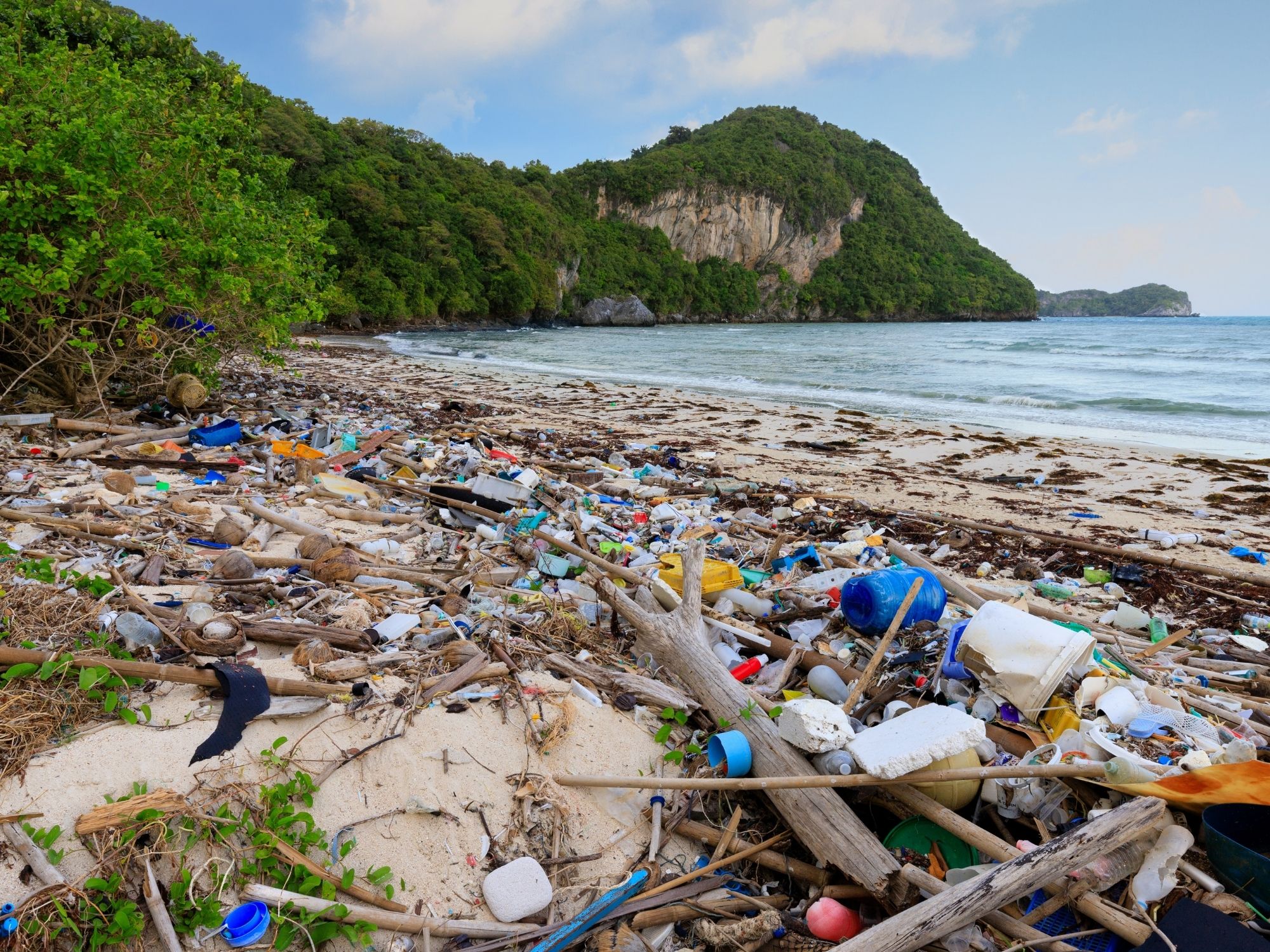
Challenges and Points of Contention
While INC-5 aims to be inclusive, there are many differing perspectives that make negotiations complex:
Differing Responsibilities: A divide exists between developed and developing countries regarding responsibility. Wealthier countries with greater resources may be expected to take on a larger share of the burden, while low-income nations often need additional support.
Industry Resistance: Plastic production is a major industry, and some companies are pushing back against measures that would limit production, preferring voluntary initiatives to binding regulations.
Concerns About National Sovereignty: Some countries worry that global regulations could interfere with domestic policies or local economies.
Potential Provisions in the Treaty
The treaty might include a range of provisions designed to curb plastic pollution globally. Here’s a snapshot of possible measures:
Reduction Targets: Binding targets to reduce plastic production, particularly single-use plastics, would drive significant change.
Recycling Standards: Global standards for recycling could make it easier to recycle effectively, reducing plastic waste in the environment.
Pollution Prevention Measures: New rules might help prevent plastics from leaking into rivers, oceans, and other ecosystems.
Funding for Lower-Income Countries: Financial mechanisms could support infrastructure, technology, and waste management in countries needing assistance.
Research & Innovation Investments: Encouraging research into alternative materials and better recycling technologies could offer long-term solutions.
Timeline and What Comes Next
Finalising the Treaty: The goal is to have the treaty in place by the end of 2024. If agreed upon, it will require countries to ratify it and then implement its rules domestically.
Follow-Up and Accountability: Future INC sessions and follow-up meetings will ensure the treaty remains effective, adjusting for new scientific findings or changes in plastic production and disposal methods.
A Message from Our CEO: Our Vision for Tackling Plastic Pollution
In this section, Steve Hardman shares their perspective on the importance of INC-5 and the global treaty to address plastic pollution, highlighting our company’s commitment to sustainable solutions and the role we can play in shaping a cleaner, healthier future for our planet.
Do you think a meaningful and effective legally binding agreement will emerge from INC-5? How important is it that such an agreement is struck?
Yes, I do think that a treaty will emerge from the INC process. It will provide member states with essential guidance on how to address plastic waste in their territories. A critical component will be the implementation of extended producer responsibility (EPR) programs, which will require landowners who use and produce plastic to collect and recycle volumes of plastic waste which relate to that which they put into the market.
Now is the time for the United Nations to act decisively, ensuring that this treaty provides clear direction for member states so they can address plastic waste directly.
Do you think the treaty should include a global plastic production reduction target?
While the concept of moderating the production of virgin plastics is a critical consideration, implementing and enforcing such a target globally would be incredibly challenging. All options should be considered how to achieve that, which could include a cap on production, which, as I say, is imaginable, how you would actually implement that.
What is the role and responsibility of brands in this treaty?
Brands have a vital and central role. As producers of plastic waste, they will likely bear significant responsibility under EPR programs. These programs will require brands to fund the collection and recycling of the plastic waste they introduce into the market. Achieving circularity hinges on this, as brands are key stakeholders in financing and operationalising these processes.
EPR will likely be the main policy mechanism at the national level for meeting treaty obligations. What form should EPR take?
The treaty should provide member states with a framework outlining how EPR programs should be implemented. This framework must include:
1)Mandatory obligations to collect specific volumes of plastic waste.
2)Mandatory recycling targets for those materials.
3)Incorporation of recycled content into future packaging.
These mandatory measures are essential for ensuring accountability and advancing towards a circular economy.
How should the implementation of the treaty be financed, especially in the Global South where plastic pollution is most problematic?
EPR includes mechanisms for brands to fund the collection and recycling of their waste, as well as the purchase of recycled materials. However, financing upfront costs is critical. Projects in the Global South need capital to build infrastructure, such as factories and machinery, to handle plastic waste. Our work focuses on setting up financing structures that provide this capital today, with repayments over time as brands meet their obligations.
Do you think there should be varying regulations for developing and non-developing countries?
They should have a higher burden. Much of the profit from plastic-related products flows to the Global North, while the waste and its associated problems often remain in the Global South, where waste management infrastructure is often inadequate. Developed countries should shoulder a greater responsibility to address this imbalance.
How can organisations like Plastic Collective contribute to supporting the treaty goals?
Our role is to finance projects that enable the collection and recycling of plastic waste, ensuring long-term sustainability. Scaling plastic recycling and collection by over 2,000% in the next 16 years is a colossal challenge. Organisations like ours are instrumental in providing the investment needed to expand capacity and create a circular economy by 2040.
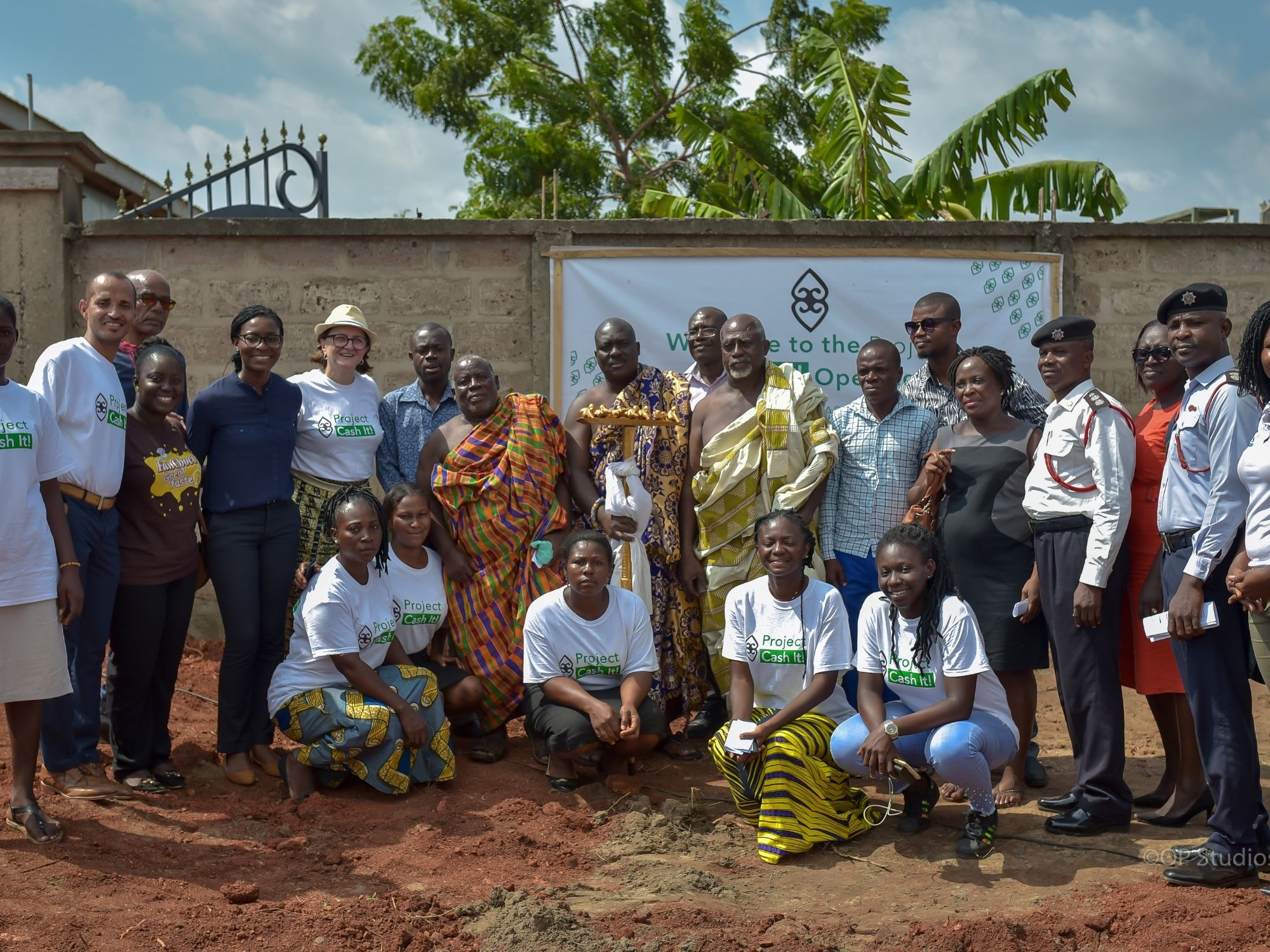
Why INC-5 Matters Globally
INC-5 isn’t just about protecting the environment, it’s about creating a healthier world for everyone:
Environmental Impact: Plastic pollution devastates marine life, harms biodiversity, and threatens ecosystems.
Health Risks: Microplastics can enter the human food chain, posing risks to human health that are still being studied.
Climate Change: Plastic production is a contributor to carbon emissions, so reducing production could also mitigate climate impact.
How Can You Follow and Support INC-5?
Staying informed about INC-5 is easy. UNEP shares updates, hosts public consultations, and provides avenues for public feedback. You can track the latest developments via UNEP’s official channels, participate in webinars, and advocate for policies that align with your vision of a sustainable future.
INC-5 represents a vital opportunity for the world to take concrete action against plastic pollution. The hope is that, by bringing together global leaders, environmental experts, and industry representatives, we can agree on a treaty that will reduce plastic pollution, protect our ecosystems, and pave the way for a more sustainable future.
This treaty could be one of the most important steps taken to protect our planet, a shared responsibility we all play a part in.
